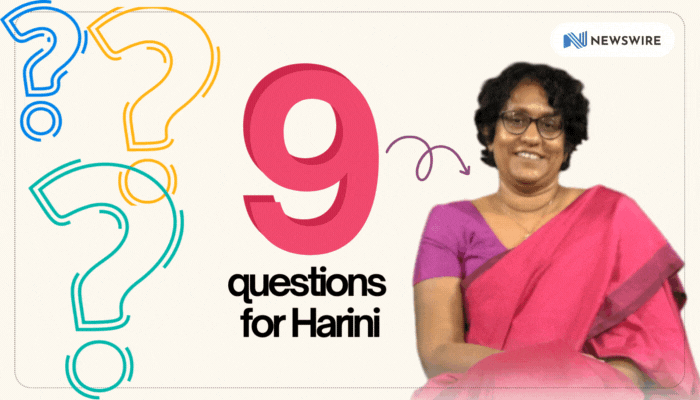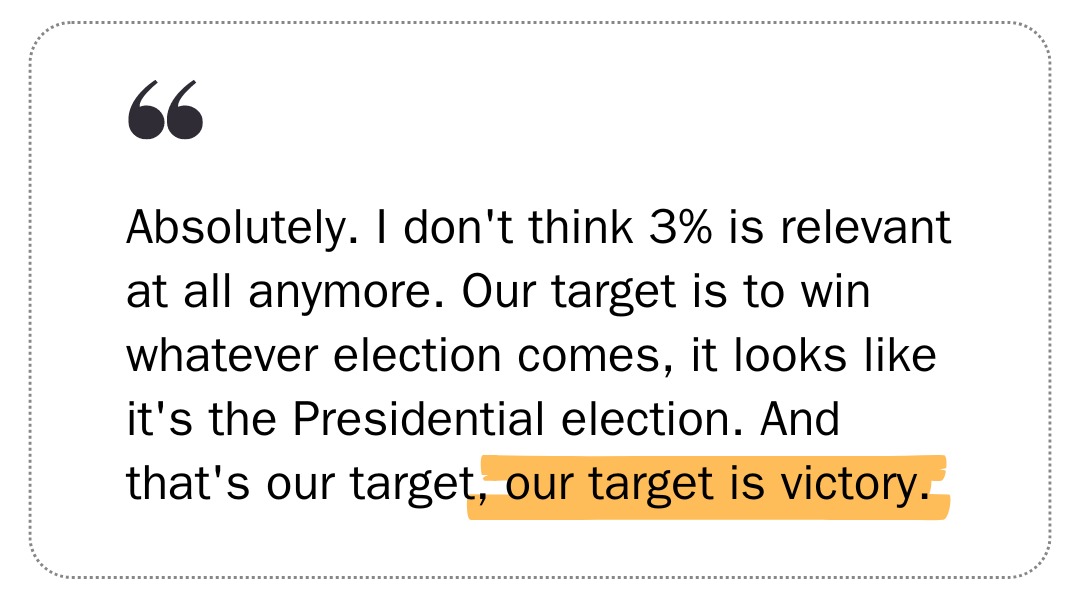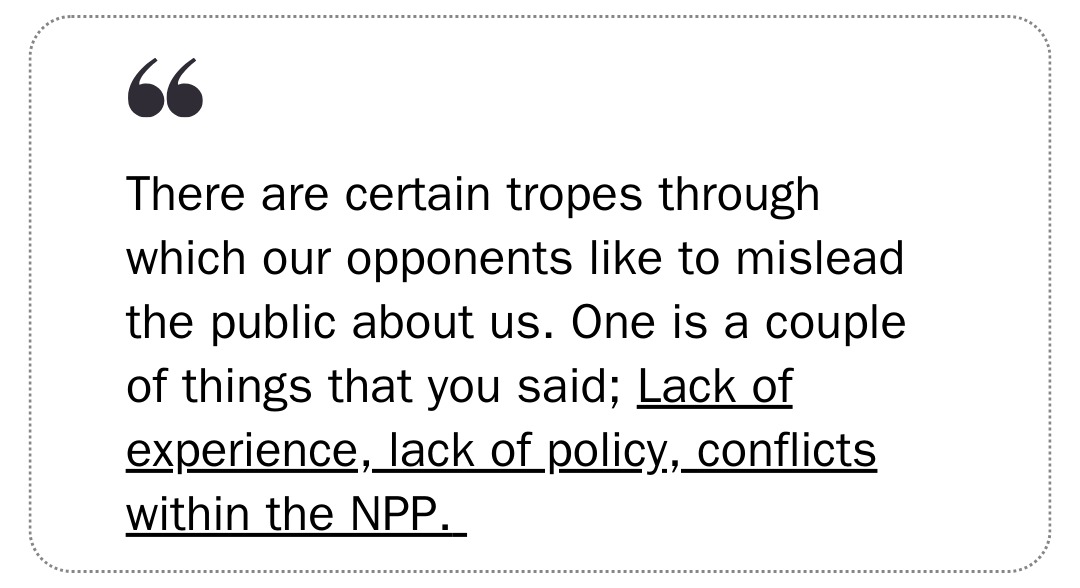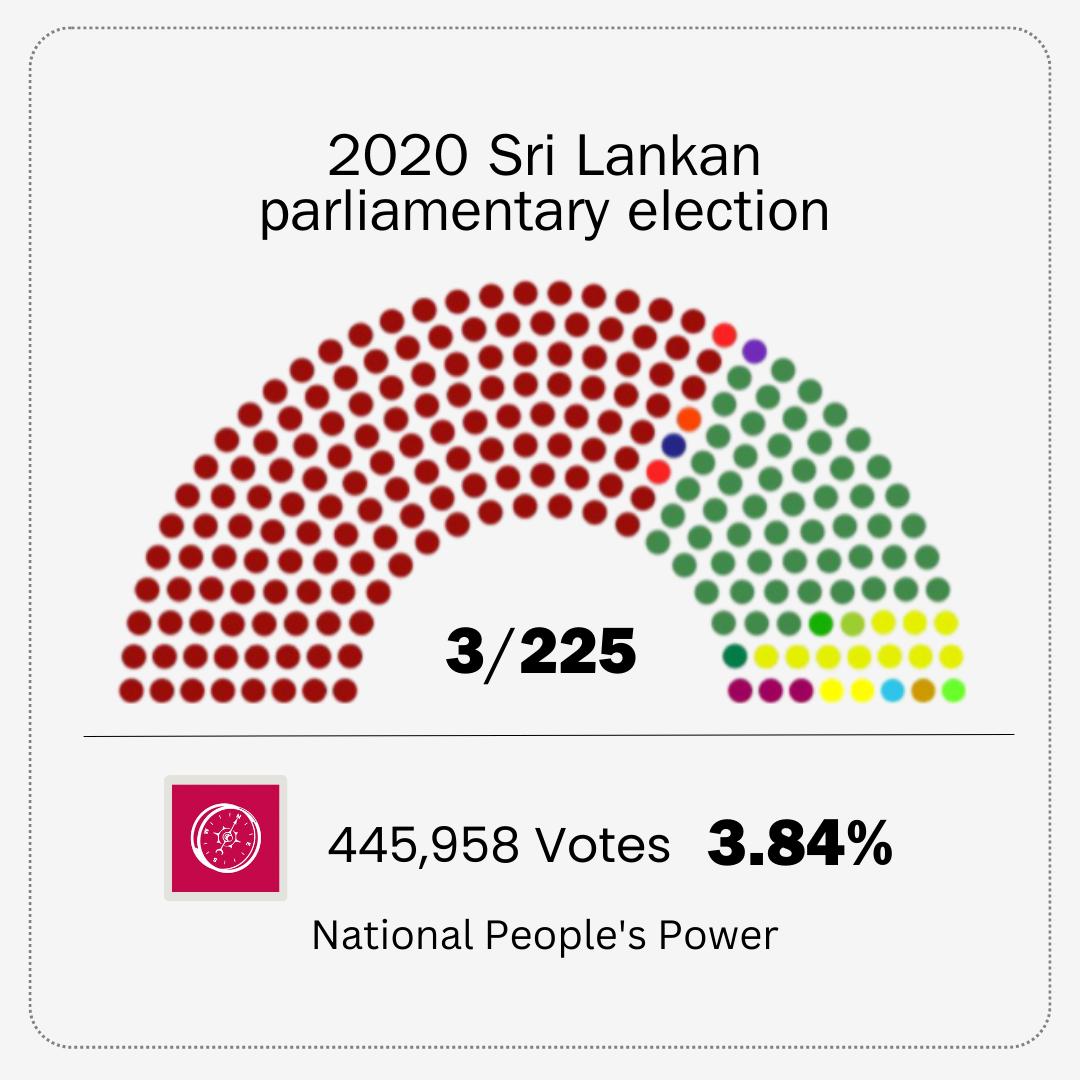

National People’s Power (NPP) Parliamentarian Dr. Harini Amarasuriya speaks to Newswire’s Kalani Kumarasinghe on the party’s preparations for elections, alleged divisions, and how the NPP plans to address criticisms and engage with voters across the nation.
1. How is the NPP preparing for the election?
Our preparations are going well. What we have been doing in the past few months and years is to get our grassroots mechanisms organized. Ours is not just a political party but a movement, to get various segments of society involved and organized within the party, so that in the event of a victory we have a large pool of people that we can call upon. That includes different sectors, the academics, the professionals, lawyers, doctors, public sector experts in various areas. We are also doing research and background work for our policies, some of which we have already released and which will go into the manifesto.
2. Do you think you can go from 3% to 50 % at least in the next election?
Absolutely. I don’t think 3% is relevant at all anymore. Our target is to win whatever election comes, it looks like it’s the Presidential election. And that’s our target, our target is victory.
3. Why do you say that 3% is not relevant anymore?
Because I think we’ve crossed that mark a long time ago. We are no longer in that category, we have reached much more. So I don’t think that 3% is of any use now.

4. One of the criticisms about your party is that you can’t govern, that you’re not prepared because you have not had that experience to govern a country…
If you look at what people with experience in governing have done to this country, I think not having that experience is probably a qualification rather than a disqualification. Because experience in a corrupt governance system, yes — certainly we don’t have. And that’s a good thing. That’s the freshness and that’s the new element that we will bring into governance.
That’s precisely why people are interested in us, because we represent something new, fresh and we represent a change. Those in our team have a range of experiences in other fields, other sectors, which are useful and which will be relevant to governing the country.
There are those who’ve been in politics for well over 20 to 30 years, there are those who have experience in the private sector, public sector and those who have experience in education, research, health. We have experience in all those different fields and those will be relevant to governing the country.
What we don’t have experience is in corruption, waste, thuggery and all that has brought this country to where it is today. So not having that experience in my view is a qualification.
5. The other major criticism that you get is that you actually don’t have an economic policy at all. What is your comment on that?
Again that’s nonsense. Those who say that we don’t have a policy, themselves don’t have a policy. I don’t know what they are trying to say. We have been a movement that has regularly put out and stated what we are going to do, we put it out in writing and we had special meetings where we’ve launched various policies also.
We’ve talked about our economic policy long enough, so I don’t understand why people are saying this, it’s clearly a falsehood.
6. Are you saying that there is a deliberate attempt at propagating misinformation at play there?
There are certain tropes through which our opponents like to mislead the public about us. One is a couple of things that you said; Lack of experience, lack of policy, conflicts within the NPP.
That the NPP is a cover for some other devious, dangerous unknown element. All of these are manifestly untrue. I think our opponents can’t really meet us face to face and engage with us for a policy or political discussion. So then they resort to mudslinging and falsehoods.

7. Can you keep the JVP’s policies away from the NPP’s policies?
Why should we? There’s nothing called the JVP policies, and keeping the JVP – like some kind of disease that we need to be protected from. JVP is part of the NPP and whatever policies that we put out, have been put out is because we all agree to them.
So I mean, I don’t understand what you mean by keeping them out of it. They’re part of the NPP. Their views and their opinions are as of much value to us as of any other constituent party or group in the NPP. The final document or the position we take is based on consensus or collective agreement.
8. But there are groups of people who see a division between the NPP and the JVP and are unsure of how to support the NPP. What do you say to this group?
There is no division. So I don’t understand where that fear comes from. It’s a fear that is constructed by our opponents, but I’m telling you that there is no such thing.
Then I don’t think anyone needs to fear a division or a lack of consensus or an internal conflict going on. If people have concerns about the JVP and its past, I would ask them to really look at the past.
The difference is that we don’t keep bringing up the ugly past of our opponents. If I was to do that, for instance I could give a litany of really unsavoury and really dangerous aspects of our opponents past.
For example the link between the President Ranil Wickremesinghe and underground characters like Gonawala Sunil. Or his connection to the Batalanda torture camp or his presence in Jaffna when the Jaffna library burnt.
Or more recently even his connection to the Central Bank scam, the way he protects his friends. We also can engage and ask the public whether we are willing to have as president, someone who has clear links with the underworld.
We can ask similar questions of the others but we don’t resort to that, whereas our opponents constantly talk about a past that very clearly the JVP has renounced and that the JVP has in their practice and behaviour, demonstrated that they are a very different group to what they were in the 1980s.
And even if they look at what happened in the 1980s, I would suggest that you need to look at what other people were doing in the 1980s. How democracy was suppressed, authoritarian and fascist the government was at that time, how violent they were and placed the JVP’s actions also within that broader context and then questioned that entire period of history, rather than questioning the JVP.
The issue is that we don’t keep digging up the past of our opponents. If we want to, we can. I think they have far more to answer for than the JVP, because they were actually in power and they abused state power and engaged in tremendous levels of corruption. And they continue to do so.

9. How do you plan to get the support of the North and East?
At the moment our engagement is with the people of this country, involving everybody in strengthening the people’s movement. And in that we have representation from all the different communities from every part of the country.
The same work we do in other parts of the country, we do in the north and east as well. There also we have our grassroots structures, professional groups, who have been linked to the NPP.
Our intention here is not, at the moment, to build coalitions with any political party but to keep expanding our movement so that any citizen of this country from any part of the country can be part of it.
